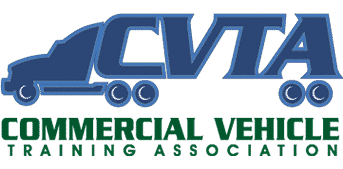International trucking is a vital part of our global economy. It’s the backbone that ensures goods travel safely and efficiently from one country to another. If you’re considering a career in trucking, understanding international trucking is essential. In this blog, we’ll provide an overview of international trucking, covering its importance, the types of trucks used, regulations, and how you can become an international trucker.
The Importance of International Trucking
Picture the things you use every day – clothes, electronics, food. Chances are, they’ve traveled a long way before reaching your hands. International trucking is how goods cross borders to reach their final destinations. It connects manufacturers, distributors, and consumers worldwide.
Without international trucking, our stores would be empty, and our economy would suffer. It’s a critical industry that offers job opportunities and drives economic growth.
Types of Trucks Used in International Trucking
International trucking relies on different types of trucks to get the job done.
Here are a few common ones:
Semi-Trucks (Tractor-Trailers)
Tractor-trailers are the big rigs you often see on highways, comprising a tractor (front) and a trailer (rear). They can carry a substantial load and are the workhorses of international trucking.
Refrigerated Trucks
Also known as reefers, these trucks have temperature-controlled trailers, keeping perishable goods like fruits, vegetables, and dairy products fresh during long journeys.
Flatbed Trucks
These trucks have a flat trailer without sides, suitable for transporting oversized or irregularly shaped cargo like construction equipment and steel beams.
Tanker Trucks
Tanker trucks are designed to transport liquids like oil, chemicals, and even milk and have cylindrical tanks that ensure the cargo stays secure and uncontaminated.
International Trucking Regulations
International trucking involves crossing borders and dealing with various rules and regulations.
Here are some key points to know:
- Licensing and Permits: To drive internationally, truckers need the appropriate licenses and permits. These may vary depending on the countries you’ll be traveling through.
- Weight and Size Limits: Different countries have different weight and size limits for trucks. Truckers must adhere to these restrictions to avoid fines and delays.
- Customs Documentation: Crossing borders requires dealing with customs paperwork. Truckers must ensure they have all the necessary documentation for their cargo to clear customs smoothly.
- Safety Regulations: Safety is paramount in international trucking. Truckers must comply with safety standards, including regular vehicle inspections and adherence to driving time limits to prevent fatigue.
Becoming an International Trucker
If you’re interested in becoming an international trucker, here are six general steps to follow:
- Get a Commercial Driver’s License (CDL): Start by obtaining a CDL, which is a requirement for all truck drivers. You’ll need to pass written and skills tests.
- Gain Experience: Work as a local or regional truck driver to gain experience and familiarize yourself with the industry.
- Learn About International Trucking: Study the regulations, customs processes, and documentation required for international trucking.
- Secure a Job: Look for companies that specialize in international trucking and apply for positions.
- Obtain Necessary Permits: Ensure you have the required permits and licenses for the specific routes and countries you’ll travel through.
- Stay Safe: Safety is essential. Always follow safety regulations and take care of your health and well-being on the road.
Launch Your International Trucking Career at Phoenix Truck Driving School
Ready to kickstart your international trucking career? At Phoenix Truck Driving School, we’re here to help you earn your CDL. Our expert training programs will prepare you for the road ahead, covering everything from handling different truck types to mastering international regulations and customs procedures. Enroll in one of our programs today and take the first step toward a rewarding profession.



